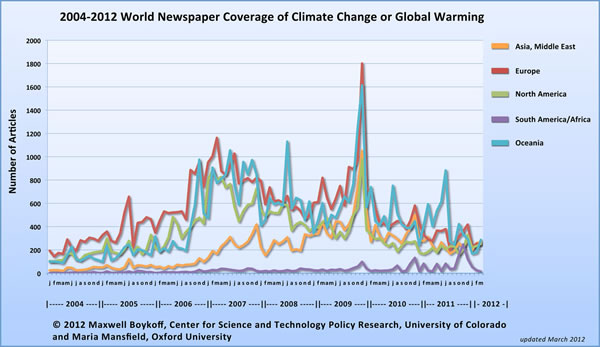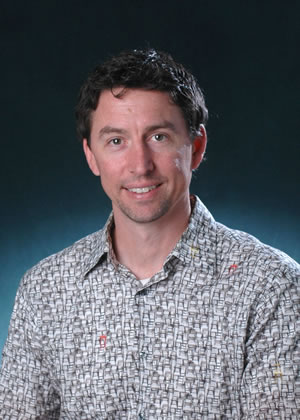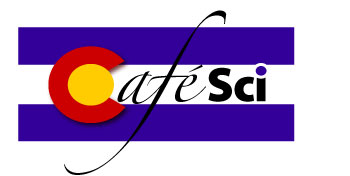About the topic
Bio
Get the Flyer (pdf)
About the topic
 Mass media serve vital roles in communication processes between science, policy and the public, and often stitch together perceptions, intentions, considerations, and actions regarding climate change. Many dynamic, contested and complex factors contribute to how media outlets portray various facets of climate change science, politics and policy. In this talk, I will touch on salient and swirling contextual factors as well as competing journalistic pressures and norms that contribute to how issues, events and information have often become climate 'news'.
Mass media serve vital roles in communication processes between science, policy and the public, and often stitch together perceptions, intentions, considerations, and actions regarding climate change. Many dynamic, contested and complex factors contribute to how media outlets portray various facets of climate change science, politics and policy. In this talk, I will touch on salient and swirling contextual factors as well as competing journalistic pressures and norms that contribute to how issues, events and information have often become climate 'news'.
I will focus my attention on how particular problems and snags in the web of interaction between science, media, policy and the public have contributed to critical misperceptions, misleading debates, distractions and divergent understandings – that are detrimental to efforts that seek to enlarge rather than constrict the spectrum of possibility for responses to climate challenges. To make this more concrete, at part of this discussion I will discuss some factors and features that shape media treatment of climate stances taken up by candidates in the US Republican Primaries, which culminate in Spring 2012. Overall, I will situate issues like these in the wider context of a 'cultural politics of climate change', where formal climate science and governance link with people's everyday activities in the public sphere.
Interesting reading from the National Academies Press: Climate change is occurring. It is very likely caused by the emission of greenhouse gases from human activities, and poses significant risks for a range of human and natural systems. And these emissions continue to increase, which will result in further change and greater risks.
America's Climate Choices (2011, National Academies Press, available as a printed book or a free downloadable PDF) makes the case that the environmental, economic, and humanitarian risks posed by climate change indicate a pressing need for substantial action now to limit the magnitude of climate change and to prepare for adapting to its impacts.
The American Association for the Advancement of Science (AAAS) offers coverage of the Republican and Democrat candidates' views on science.
Bio
 Maxwell T. Boykoff is an Assistant Professor in the Center for Science and Technology Policy, which is part of the Cooperative Institute for Research in Environmental Sciences at the University of Colorado-Boulder. He teaches in the Environmental Studies program and is Adjunct faculty in the Geography Department. In addition, Max is a Senior Visiting Research Associate in the Environmental Change Institute at the University of Oxford. He holds a Ph.D. in Environmental Studies from the University of California-Santa Cruz and Bachelor of Sciences in
Psychology from The Ohio State University. Max has ongoing interests in climate adaptation, cultural politics and environmental governance, science-policy interactions, and political economy and the environment, and he has experience working in North America, Central
America, South Asia and Europe.
Maxwell T. Boykoff is an Assistant Professor in the Center for Science and Technology Policy, which is part of the Cooperative Institute for Research in Environmental Sciences at the University of Colorado-Boulder. He teaches in the Environmental Studies program and is Adjunct faculty in the Geography Department. In addition, Max is a Senior Visiting Research Associate in the Environmental Change Institute at the University of Oxford. He holds a Ph.D. in Environmental Studies from the University of California-Santa Cruz and Bachelor of Sciences in
Psychology from The Ohio State University. Max has ongoing interests in climate adaptation, cultural politics and environmental governance, science-policy interactions, and political economy and the environment, and he has experience working in North America, Central
America, South Asia and Europe.
He will be speaking mainly on themes taken up in his book 'Who Speaks for Climate? Making sense of media reporting on climate change,' published in 2011 by Cambridge University Press and available from Amazon and other sources. Among his other writings are the co-edited and edited volumes 'Contentious Geographies: Environmental Knowledge, Meaning, Scale' (2008), 'The Politics of Climate Change: A Survey' (2009), 'The New Carbon Economy: Constitution, Governance and Contestation' (forthcoming in 2012) and 'Successful Adaptation: Linking Science and Practice in Managing Climate Change Impacts' (forthcoming in 2012). Max's research has been mentioned in a range of outlets such as Science, Nature, Financial Times, the Guardian, the New York Times, Harpers Magazine, Forbes, Columbia Journalism Review, the Los Angeles Times, BBC Worldservice and (US) National Public Radio. He has also appeared on CNN International and France24 television.
